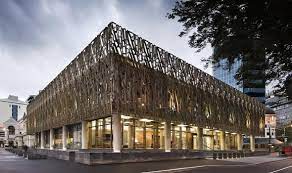Dealing With Civil Disputes in New Zealand
There are several options when it comes to dealing with Civil Disputes in New Zealand. The New Zealand law system was derived from the English system and has some notable differences from English law. For instance, the New Zealand courts are generally open to the public and members of the news media are entitled to attend court hearings. This helps maintain public confidence in the justice system. Magna Carta was signed in 1215, and it restricted the powers of the monarch. In 1840, the English legal system was adapted to New Zealand, and is still the dominant law in the country. This article will explain the system and how you can hire an Auckland civil disputes lawyer if you need help.
 The Supreme Court is the final appellate court. All decisions of this court are binding on all other courts. Although there are several lower courts, the Employment Court hears disputes related to employment, such as contract disputes. Besides the New Zealand Supreme Court, the courts of New Zealand have several specialised divisions that specialize in particular areas of law. These divisions are often referred to as ‘tiers’, and the decisions of each are binding.
The Supreme Court is the final appellate court. All decisions of this court are binding on all other courts. Although there are several lower courts, the Employment Court hears disputes related to employment, such as contract disputes. Besides the New Zealand Supreme Court, the courts of New Zealand have several specialised divisions that specialize in particular areas of law. These divisions are often referred to as ‘tiers’, and the decisions of each are binding.
The civil procedure framework in New Zealand is ripe for reform. While New Zealand courts are hesitant to provide procedural guidance, the advantages of class-wide litigation are clear. Unlike the UK courts, New Zealand’s high court rules provide no procedural guidance for class-wide litigation. This means that only a representative plaintiff can sue on behalf of all those with the same interest. This, of course, requires that the plaintiffs in the class be consulted and the Court grants leave to sue on their behalf. Most people will hire an Auckland civil disputes lawyer rather than trying to understand this process themselves.
The court may impose a freezing order against the respondent if the evidence is compelling. It must be satisfied that there is a real connecting link between the assets in question and the property of the respondent. This connection can be proven by evidence obtained from a witness in New Zealand. If this is established, the court will grant the freezing order. In this manner, the court will avoid the risks of losing a case to overseas arbitrators.
Judges in New Zealand are appointed by the Governor-General and are not elected by the people. However, they are appointed on the advice of the Attorney-General, a Cabinet Member of the government. The Attorney-General has considerable power to appoint judges, and the appointment process is impartial and devoid of political influence. You can find a JP by looking for their name online.
 The courts in New Zealand have a wide variety of jurisdictions. The High Court is the main venue for claims exceeding NZ$350,000, while the District Court deals with claims of lesser value. The two main courts of first instance have their own appellate levels. Appeals can be made from decisions of the District Court to the High Court, and most civil claims are allowed one appeal as a matter of right. Subsequent appeals require leave.
The courts in New Zealand have a wide variety of jurisdictions. The High Court is the main venue for claims exceeding NZ$350,000, while the District Court deals with claims of lesser value. The two main courts of first instance have their own appellate levels. Appeals can be made from decisions of the District Court to the High Court, and most civil claims are allowed one appeal as a matter of right. Subsequent appeals require leave.
Auckland Civil Disputes Lawyer – Hiring One To Help
Despite the relative simplicity and ease of access to the court process in New Zealand, it is still largely an impenetrable thought process for most people. Not surprisingly, they will choose to hire an Auckland civil disputes lawyer to represent them. This might be by corresponding with the other side’s lawyers, or within court. If you need advice or legal assistance in a civil dispute, consider talking to McVeagh Fleming. They have numerous lawyers with different areas of speciality who can probably help you.
www.mcveaghfleming.co.nz